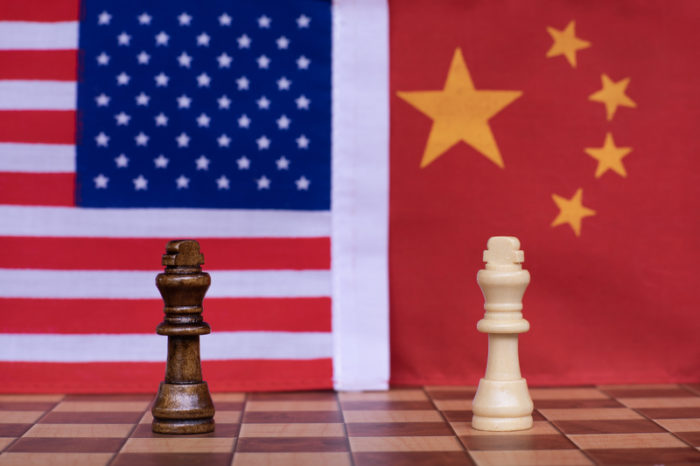
An in-person meeting between President Joe Biden and China’s Xi Jinping would help to calm anxiety among South and Southeast Asian nations at the fast-rising tensions between China and the US, heightened by House Speaker Nancy Pelosi’s visit to Taiwan.
Plans are still uncertain but Xi may meet Biden at the margins of a G20 summit in Bali, Indonesia on Nov. 15-16 or an Asia-Pacific Economic Cooperation summit two days later in Bangkok, Thailand.
Before that, a China Communist Party congress will have renewed Xi’s mandate for an unusual third five-year term as supreme leader, making his domestic political stature almost impregnable.
Meanwhile, the November congressional elections might weaken Biden’s position if the Democrats lose one or both Houses, a possibility that remains despite his recent remarkable legislative wins.
Worse, American domestic politics is aggressively tearing itself apart. The rifts are worsening following the FBI raid on former President Donald Trump’s home at Mar-a-Lago.
For America’s Asian allies and friends, this domestic polarization looks unlikely to end soon. Alarm is growing because top House democrats have asked America’s intelligence chief to review potential damage to national security stemming from Trump’s storage of classified documents at his home. Reportedly, he is also being investigated for possible violations of the Espionage Act and for allegedly inciting insurrection on January 6, 2020.
These are extraordinary accusations and signal deepening divides in American politics. It would be foolhardy for Asian governments to be sanguine about such intense infighting in America, especially as Biden would like their support in his difficult diplomatic struggle to contain Xi.
They are already rattled by Xi’s very sharp militarized reaction to Pelosi’s visit to Taiwan. Whatever Pelosi’s reasons, she is perceived as having deliberately poked Xi in the eye by crossing his long-standing and well-known red lines over Taiwan.
Asians are wary of seriously offending Xi because none has confidence that a divided Washington is capable of providing security and economic support consistently over time. It is already burdened heavily by the protracted Russian invasion of Ukraine. Further, Biden may become trapped in another war in the Middle East to stop Iran from acquiring nuclear weapons.
The nightmare for South and Southeast Asian countries is an unwritten military and economic alliance between Moscow and Beijing while the Biden circles the wagons of his European and other allies.
Some American politicians may feel hubris because the US leads allies with a collective defense budget of over $1.3 trillion and collective economic wealth of over $50 trillion. In comparison, China and Russia have a combined worth of only $20 trillion and defense budgets of less than $500 billion.
Additionally, Washington and the European Union are successfully weaponizing finance and trade to impose sanctions to punish rivals, including secondary sanctions enforced by the US Treasury.
But all that immense power failed to tame US opponents in Afghanistan, Iraq, Iran and Syria. It is unlikely to sway Beijing and Moscow. The only path to solutions lies through diplomacy initiated if and when Biden meets Xi.
To avoid annoying Xi, South Korean President Yoon Suk-yeol did not meet Pelosi although his country is a longtime ally that depends on a US security umbrella against nuclear-armed North Korea. This was a diplomatic snub since protocol ranks Pelosi as second after Biden and she met the prime ministers of Singapore, Malaysia and Japan, and Taiwan President Tsai Ing-wen.
A few days later, South Korean foreign minister Park Jin met his Chinese counterpart Wang Yi in Beijing but could not placate renewed objections to American placement of the Terminal High Altitude Area Defense (THAAD) system in South Korea in 2016.
After years of apparent acquiescence, a Chinese spokesman said that THAAD deployment in South Korea “undermines China’s strategic security interest”. Yoon, a conservative, is hesitating to buy another system despite having been in favor during his election campaign about six months ago.
With Taiwan and North Korea, the neighborhood is a powder keg in which Washington is deeply involved. If war breaks out over Taiwan, destruction, scarcities, supply chain disruptions and inflation will have to be borne by the entire region’s countries. Fighting could also involve US treaty allies Japan, South Korea, Australia and the Philippines.
While many worried Asians would like to benefit from a US security umbrella, even an informal one, they are apprehensive about annoying Beijing. It is their largest trading partner and an overwhelming military power at their doorstep because of geography.
South and Southeast Asians have begun to look for ways to stay out of the growing hostility of Biden’s America against China and Russia. They are less interested in the rights and wrongs of that hostility than in protecting their people from the economic damage it will cause.
A day after Pelosi left Taiwan, an enraged Xi demonstrated his military’s capacity to encircle the island and blockade ports and trade routes. This kind of war over Taiwan will be very costly for China but Xi is deeply committed, as is the entire Chinese Communist Party, to unifying Taiwan with the mainland through invasion if necessary.
Photo 148848820 © Tanita Chunsiripongpann | Dreamstime.comUs
















